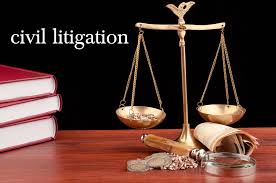Civil Court Representation: Choosing the Right Attorney for Your Case
When faced with a civil dispute that requires litigation, choosing the right attorney is paramount to the success of your case. The complexities involved in civil court proceedings demand expertise and experience that only qualified legal counsel can provide. Whether you are a plaintiff seeking justice or a defendant protecting your rights, understanding the importance of civil court representation and selecting the right attorney can significantly impact the outcome of your case. This article explores the key considerations for civil court representation, the qualities to look for in an attorney, and how to find the right legal partner for your needs.
Understanding Civil Litigation
Civil litigation refers to the legal process through which disputes between individuals, organizations, or government entities are resolved in a court of law. Civil litigation may involve a broad spectrum of matters, such as:
- Contract disputes
- Property disputes
- Personal injury claims
- Family law matters (e.g., divorce, child custody)
- Employment disputes
- Class actions
In any civil litigation scenario, the outcome can have significant implications for all parties involved. Thus, having skilled legal representation through the entire process is critical.

Importance of Civil Court Representation
1. Legal Expertise
Civil litigation involves complex rules, procedures, and legal statutes that can be challenging to navigate without expertise. Attorneys who specialize in civil litigation are familiar with the specific laws relevant to your case and can develop effective legal strategies.
2. Objective Perspective
Legal issues can be emotionally charged, especially when they involve personal matters such as family disputes or financial loss. An experienced attorney brings an objective perspective that helps clients make informed decisions without succumbing to emotions or stress.
3. Protection of Rights
Having an attorney ensures that your rights are fully protected throughout the legal process. Legal representation allows you to assert your rights more effectively and respond appropriately to any claims made against you.

4. Efficient Resolution
Civil attorneys are skilled negotiators and often explore alternative avenues for resolving disputes, such as mediation or settlement discussions. This can lead to more efficient resolutions, saving clients time and legal costs.
Qualities to Look for in a Civil Litigation Attorney
When searching for the right attorney for your civil court representation, consider the following qualities:
1. Experience and Expertise
- Relevant Experience: Look for an attorney with experience specifically in the type of civil case you are facing. Each area of civil litigation has unique nuances, so an attorney with a track record in your case type will better navigate the complexities.
- Successful Outcomes: Inquire about the attorney’s success rate in similar cases. While past results do not guarantee future outcomes, they can provide insight into the attorney’s effectiveness.
2. Communication Skills
- Active Listening: An effective attorney will take the time to listen to your concerns, asking questions to fully understand your case and objectives.
- Clarity in Explanation: A good attorney should be able to explain complex legal concepts in simple terms, ensuring you understand the legal process and your options.
- Availability: Select an attorney who is easy to reach and promptly replies to your messages and phone calls.

3. Legal Strategy
- Problem-Solving Abilities: An effective attorney should be able to identify potential issues early in the process and develop a comprehensive strategy for addressing them.
- Negotiation Skills: Many civil cases are resolved through negotiations. Look for an attorney with strong negotiation skills to secure favorable terms without going to trial.
4. Reputation
- Client Reviews: Research online reviews and testimonials from former clients to gauge their experiences with the attorney. Positive reviews often reflect a lawyer’s professionalism and effectiveness.
- Peer Recommendations: Consult with other professionals in the legal field for recommendations on reputable attorneys who are recognized for their expertise in civil litigation.
5. Fee Structure
Understanding the attorney’s fee structure is essential for evaluating the overall cost of legal representation. Common fee arrangements include:
- Hourly Rate: Attorneys charge based on the amount of time worked on the case. Ensure you understand the hourly rate and any additional costs.
- Flat Fees: Some attorneys may offer flat fees for specific services or cases, providing predictability in costs.
- Contingency Fees: In certain civil cases, like personal injury claims, lawyers may work on a contingency fee basis, meaning they only get paid if you win the case.
6. Personal Connection
- Comfort Level: Choose an attorney with whom you feel comfortable discussing your case and concerns. A strong attorney-client relationship can make the process more manageable.
- Trustworthiness: Confidence in your attorney’s integrity and ethical standards is crucial, as they will be serving as your advocate throughout the litigation process.
Steps to Finding the Right Civil Litigation Attorney
- Research Potential Candidates: Start by conducting online research, asking for referrals from friends or colleagues, or consulting local bar associations.
- Set up a first meeting: Numerous lawyers provide complimentary initial consultations.
- Prepare for Consultations: Bring relevant documentation relating to your case, including any correspondence, contracts, or formal notices. This will help the attorney provide informed input during the consultation.
- Evaluate Costs and Fees: Discuss the attorney’s fee structure upfront, including any retainer fees or costs you may incur during the representation.
- Trust Your Instincts: After consultations, evaluate how you feel about each attorney. Select an individual you trust and feel at ease working with, who also demonstrates strong competence.

Conclusion
Choosing the right attorney for civil court representation is crucial for navigating the complexities of litigation effectively. By understanding the key qualities to look for in a civil litigation lawyer and adopting a strategic approach to the selection process, individuals can enhance their chances of achieving favorable outcomes in their cases. With proper representation, you can protect your rights, mitigate risks, and pursue justice in the civil court system. Engaging a skilled attorney who specializes in civil litigation not only provides you with valuable legal expertise but also offers peace of mind as you navigate the challenges of your case.
